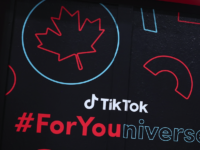New legislation making its way through the U.S. Congress has placed a TikTok ban back on the public agenda. The bill – which would lead to either a divestiture or ban – has passed the House of Representatives and is now headed to the Senate. On the Canadian front, TikTok is already prohibited on government devices at the federal level alongside some provinces, the government has quietly conducted a national security review, and there are new calls to ban it altogether from the Canadian market. Anupam Chander is a law professor at Georgetown University and leading expert on the global regulation of new technologies. He joined the Law Bytes podcast several years ago when a TikTok ban was raised by the Trump Administration and he returns this week to discuss the latest developments and their broader implications.
Post Tagged with: "tiktok"
Better Laws, Not Bans: Why a TikTok Ban is a Bad Idea
New legislation making its way through the U.S. Congress has placed a TikTok ban back on the public agenda. The app is already prohibited on government devices in Canada, the government has quietly conducted a national security review, and there are new calls to ban it altogether from the Canadian market. While it might be tempting for some politicians to jump on the bandwagon, a ban would be a mistake. There are legitimate concerns with social media companies, but there simply hasn’t been convincing evidence that TikTok currently raises a national security threat nor that it poses a greater risk than any other social media service. The furor really seems to be a case of economic nationalism – a desire to deny a popular Chinese service access to the U.S. market – rather than a genuine case that TikTok poses a unique privacy and security threat. Taken at face value, however, the case against TikTok comes down to a simple concern: its owner, ByteDance, is a Chinese company that could theoretically be required to disclose user information to the Chinese government or compelled to act on its behalf. The proposed U.S. law therefore would require that TikTok be sold within six months or face a ban.
While the concerns associated with TikTok given its Chinese connection and popularity with younger demographics are well known, the privacy and security case against it is very weak.
The Law Bytes Podcast, Episode 159: Fenwick McKelvey on the Rapid Spread of Government TikTok Bans
TikTok may be enormously popular, but according to the growing number of government, there are concerns regarding links between the app and the Chinese government. That has led to a rapid spread bans of the TikTok app on government devices not only at the federal level, but at provincial and municipal governments and even at universities for university-owned devices. But is TikTok unique in this regard? How to reconcile the government’s insistence that TikTok contribute to Cancon in Bill C-11 with it banning the app due to security risks? Are the privacy concerns more about TikTok or the government’s inaction on privacy reform?
Fenwick McKelvey is an Associate Professor in Information and Communication Technology Policy in the Department of Communication Studies at Concordia University and the co-director of the Applied AI Institute. He returns to the Law Bytes podcast to talk about the TikTok bans, the state of Canadian policy in addressing the concerns, and why we may be heading for more geo-political battles over digital policy.
The TikTok Block: Why Does the Canadian Government Seem to Embrace Weak Privacy Rules?
The Canadian government often talks about the importance of privacy, but actions speaks louder than words. Not only has privacy reform clearly not been a priority, but the government seems more than willing to use the weak privacy rules to further other policy goals. There is an obvious price for the government’s indifference to privacy safeguards and it is paid by millions of Canadians when major privacy incidents (think Tim Horton’s or Home Depot) result in no substantive changes and no urgency for reform from the government. Indeed, as I noted yesterday on Twitter, the government has managed to rush through user content regulation in Bill C-11 and mandated payments for links in Bill C-18, but somehow privacy reform in Bill C-27 has barely moved. Some of the responsibility must surely lie with Innovation, Science and Industry Minister François-Philippe Champagne, who brings high energy to everything but privacy reform, but the decision reflects on the entire government.
Register Your TikTok Videos at the CRTC?!: Commission Encourages TikTokers To Participate in Future Process on Bill C-11 Content Registration
Even as Canadian Heritage Minister Pablo Rodriguez continues to insist that user content isn’t touched by Bill C-11, the CRTC is sending a different message. In a recent article on how digital creators are contemplating leaving Canada as a result of Bill C-11’s regulation of user content, the CRTC stated:
We strongly encourage interested parties – like TikTok users – to monitor our announcements and participate in public processes. Any decisions on who would have to register and how would only follow those processes, and people should make no assumptions about how the Commission may rule beforehand.
The CRTC and its chair Ian Scott contradicting Rodriguez has been a regular occurrence throughout the Bill C-11 process.











